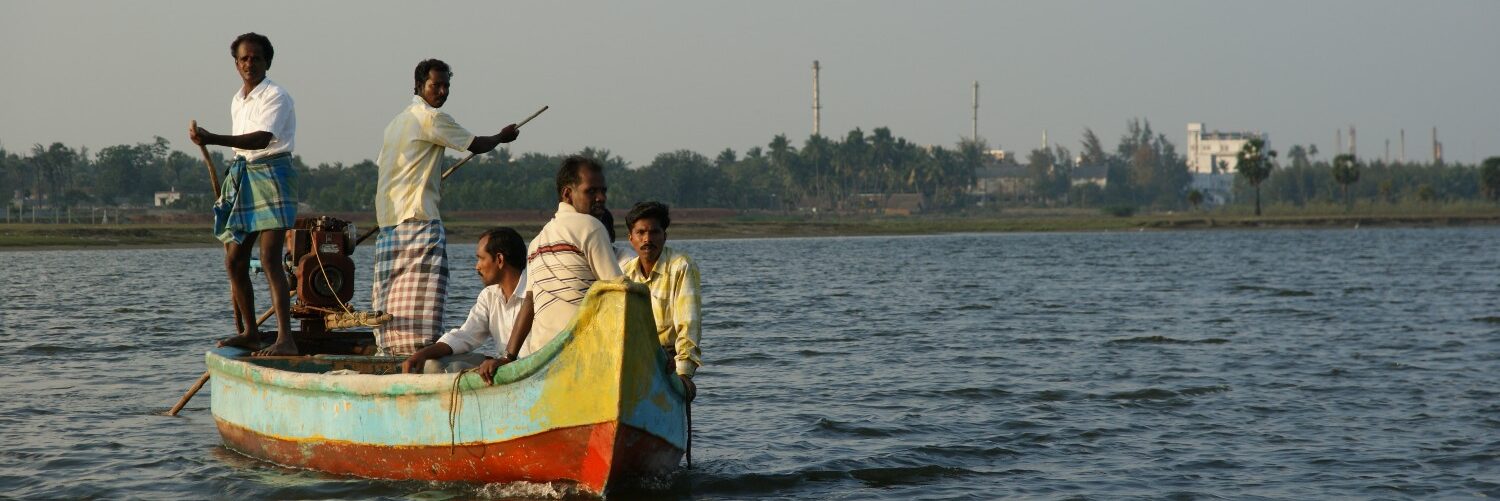Thu, Nov 6 2008
P. Manoj
LiveMint.com
Bangalore: Ambitious plans by domestic firms to boost India’s shipbuilding capacity in the next two-three years by investing some Rs20,000 crore may have to be whittled on the back of the current credit crunch and a downturn in global shipping, say experts.
“The changed situation would require some degree of reworking on their plans,” said Arvind Mahajan, national industry director, infrastructure and government, at audit and consultancy firm KPMG Advisory Services Pvt. Ltd.
“Firms will have to scale down their project scope and expand subsequently, depending upon the market,” said A.R. Balaji, associate vice-president looking after finance at ship-owning firm Goodearth Maritime Ltd, which is building a shipyard at Cuddalore, Tamil Nadu, by spending at least Rs2,000 crore.
The Indian shipping industry started eyeing a bigger share of the international market after an ordering frenzy in 2007, which tempted companies to expand capacity and attracted firms such as Larsen and Toubro Ltd, Adani Group, Apeejay Shipping Ltd and Mercator Lines Ltd to start building ships.
But just when the local industry was beginning to gain global acceptability, orders for new ships reduced to a trickle due to slower demand for cargo movements as economies in the US and Europe weakened.
“New orders have slowed down significantly,” said Dhananjay Datar, chief financial officer at ABG Shipyard Ltd. Last year, ABG had bumper orders for 33 ships worth Rs4,340 crore between April 2007 and March, and opened a new facility earlier this year at Dahej to add to its existing facility at Surat, both in Gujarat.
This year, ABG has bagged orders for building just seven ships valued at Rs3,240 crore. A bulk of this came from an order last week for constructing two offshore oil drilling rigs valued at Rs2,350 crore from Essar Oilfields Services Ltd.
“The silver lining, though, is that Indian yards are sitting on healthy order books, which will see them through till 2011-12. We are also not seeing any cancellation of orders so far unlike some of our global rivals,” said Datar.
Bharati Shipyard Ltd, the country’s second-biggest private sector shipbuilder, has secured only one order since April for two offshore vessels worth Rs293.16 crore from Norwegian Offshore Shipping Ltd.
New entrants Larsen and Toubro and Pipavav Shipyard Ltd have not added to their order books of Rs2,112 crore and Rs4,360 crore, respectively, this fiscal year.
The Shipyards Association of India (SAI), a lobbying body that represents Indian shipbuilders, says there is no change in investment plans but admits getting finance has become a problem.
“Getting funds is going to be tough for those firms whose balance sheets are not strong,” said an SAI official, who did not want to be named. “Those having strong balance sheets will be able to raise funds (but) only at a higher cost. So, firms will have to plan it out and restructure their investments.”
This would mean staggering investments over a longer period rather than in one go as was thought earlier, and scaling up capacity from a smaller base, the official added.
Larsen and Toubro also said there was no rethink on its plan to set up a big shipyard at Kattupalli, Tamil Nadu, with an investment of at least Rs3,000 crore. “It’s (a) long-term plan, not a short-term one,” said M.V. Kotwal, senior executive vice-president in charge of the company’s heavy engineering business that includes shipbuilding.
“Nobody builds a shipyard keeping in mind one or two immediate business cycles,” said Sourav Das Patnaik, chief executive officer of Bengal Shipyard Ltd and Oceanic Shipyard Ltd, the two joint venture firms floated by Apeejay Shipping Ltd to construct two shipbuilding and repair yards at Haldia in West Bengal and Badrak in Orissa with an investment of close to Rs4,500 crore.
“Shipyards are built for 100 years, during which there will be up cycles and down cycles. By the time our yard comes up, it would see up cycle once again,” he said, adding that there was no point in delaying the investment plans.
There’s a call now for a quick re-introduction of an earlier subsidy scheme for local shipyards, which ended on 14 August 2007 after a five-year term.
“There is a need for some degree of concessions so that firms continue to invest in yards despite the current scenario,” said KPMG’s Mahajan. “In the absence of subsidy, some of the firms who had announced setting up facilities could drop out.”
Globally, fleet owners are either cancelling orders or delaying construction schedules due to lack of funding and record low freight rates.
India has some 23 yards that are building some 250 ships that would together cost at least Rs24,000 crore, up from an order book of Rs816 crore in 2002, when the subsidy scheme was introduced.
The country’s shipbuilding capacity was projected to double from the current 2.8mt to 4mt of cargo carrying capacity by 2012, and to 19mt by 2017, aided mainly by cost competitiveness and availability of skilled and cheap labour, according to a recent industry-funded report prepared by KPMG.
India would then have a 7.5% share of the global market, up from less than 1% now, said the report, which was submitted to the government.
